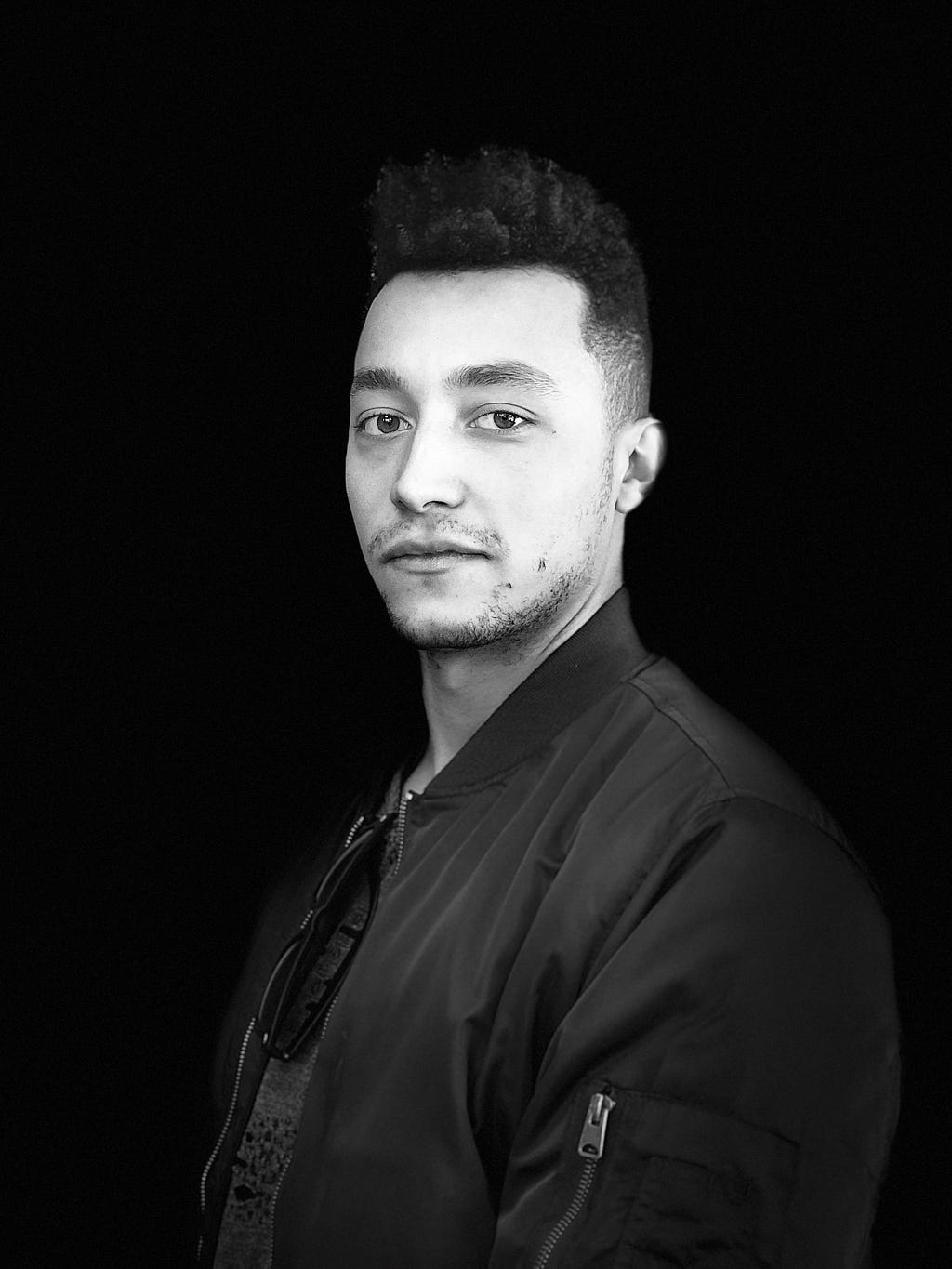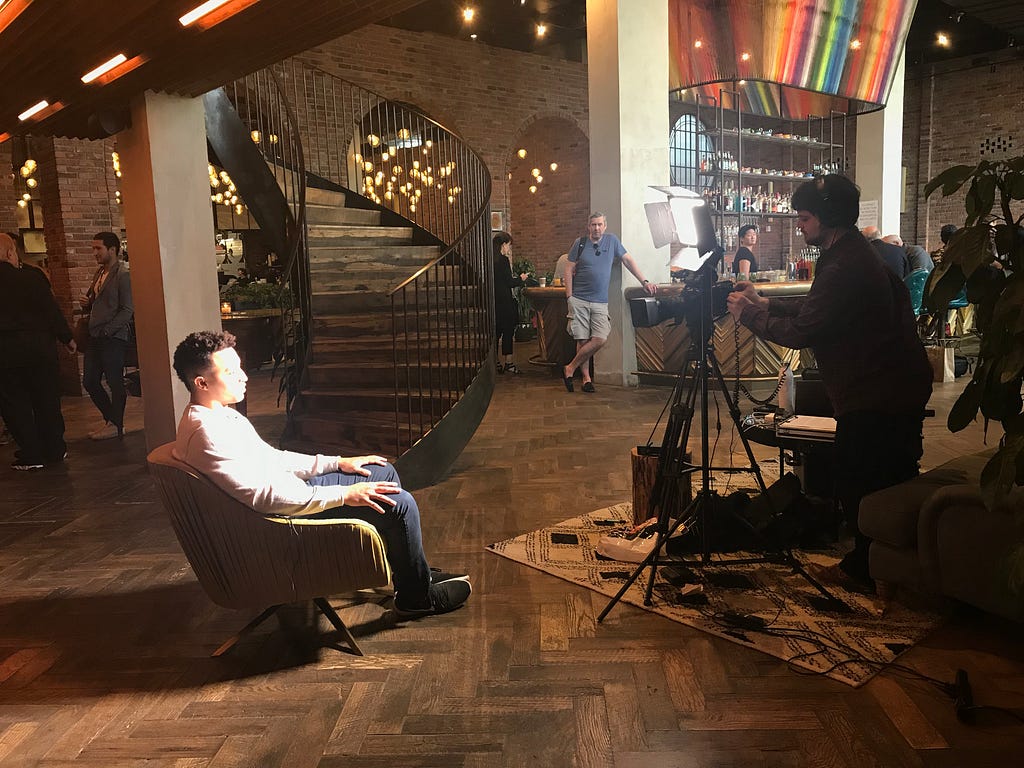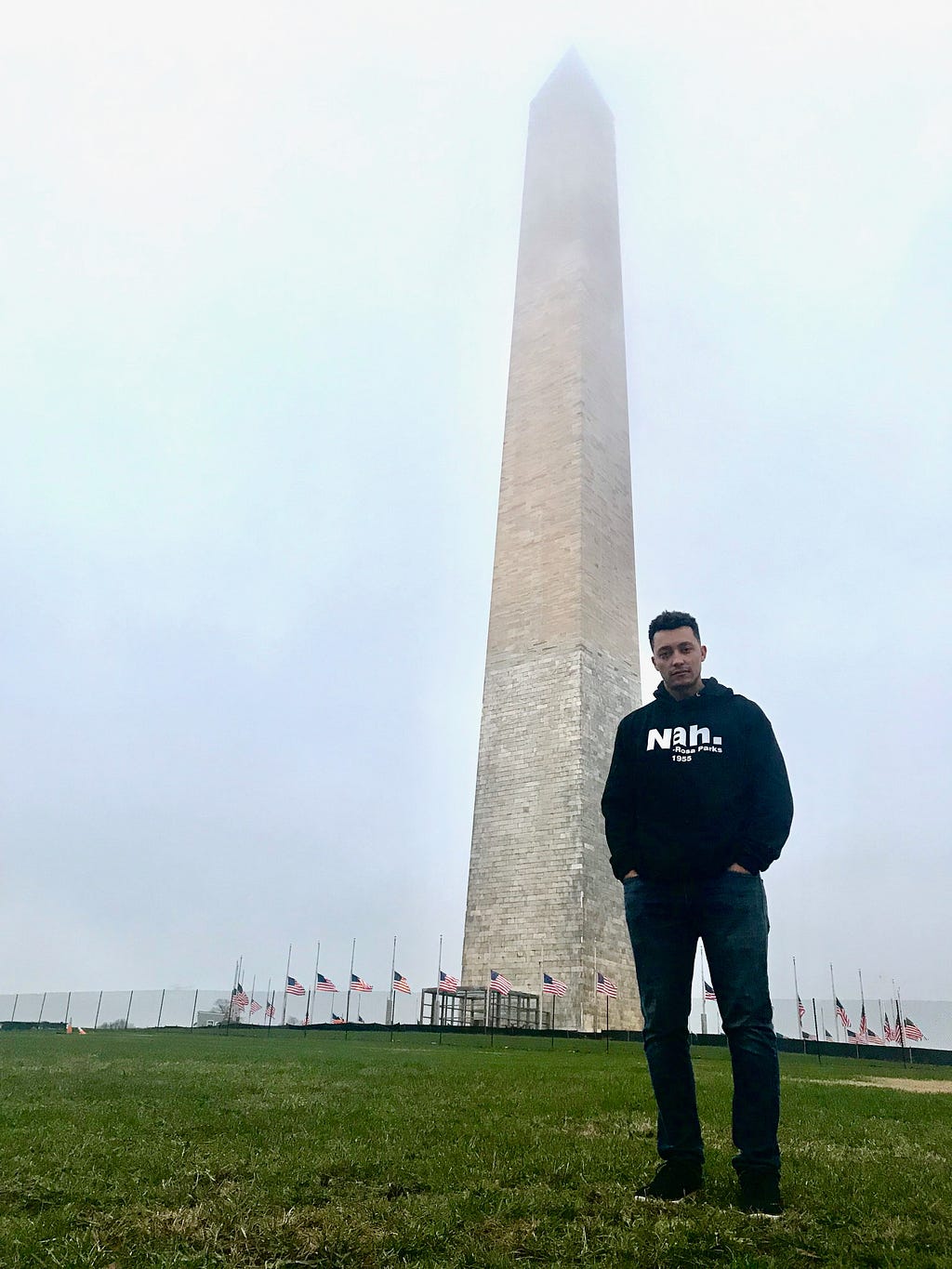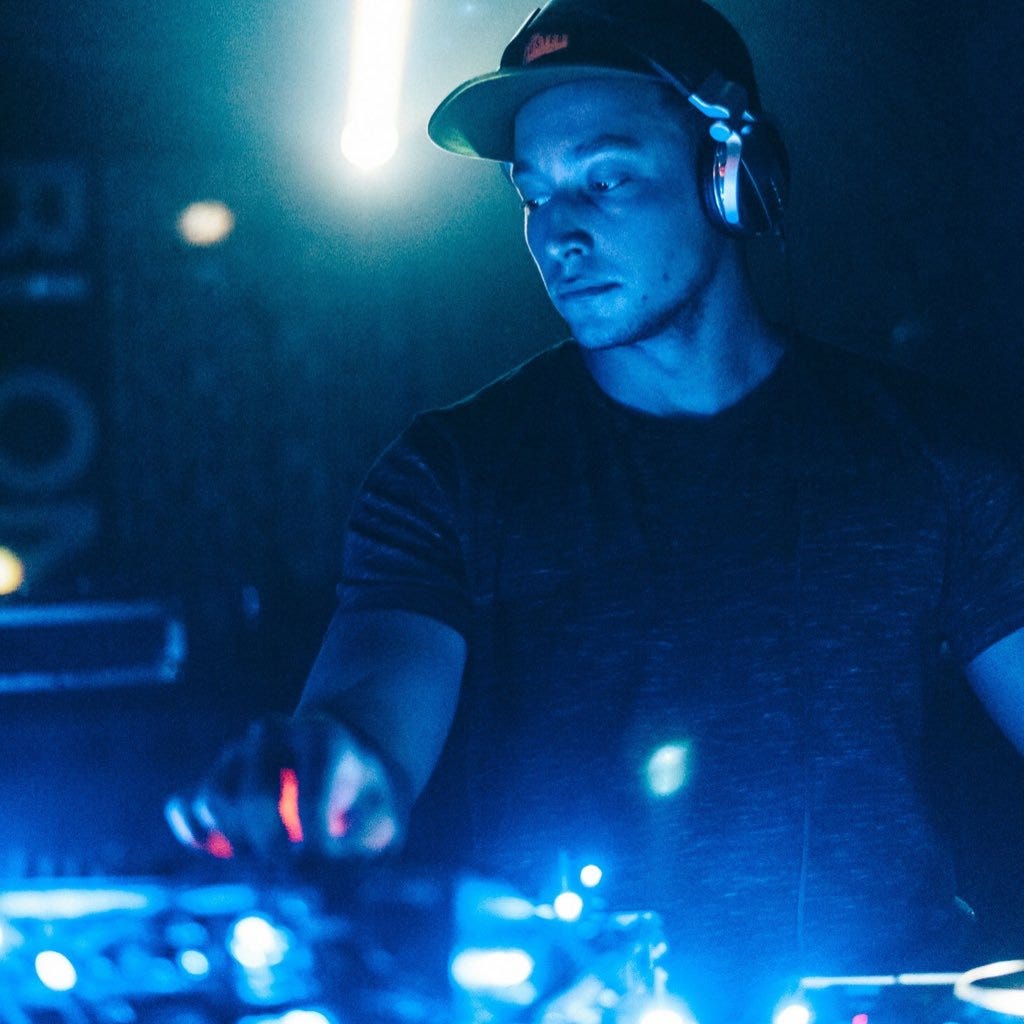
Acknowledge the hurdles, then jump them anyway. The tech industry is run by highly educated, borderline-aristocratic, middle-aged white men who call themselves venture capitalists. The last thing they want to see is a young, black programmer who dropped out of a state college walk into their office asking for money for a startup in a disruptive, unregulated industry. These guys are generally already connected with each other from whichever Ivy League school at which their family was a legacy and have no interest in diversity, regardless of what their companies boilerplate mission statement might say. Screw ’em. I raised millions for Divi without giving a dime of equity to any VCs. Don’t be afraid to bootstrap your business and use that drive to build something they’re begging to throw money at.
I had the pleasure of interviewing Nick Saponaro, Co-Founder & Lead Full Stack Developer of The Divi Project, a startup that’s like a decentralized PayPal for digital assets. A crypto investor since 2013, Nick is keenly aware of the gap that separates blockchain technology and the masses, and is using his programming expertise to help bridge it.
Thank you so much for doing this with us! Can you share with us the story of how you decided to pursue this career path? What lessons can others learn from your story?
I have always had a passion for tech, and an even deeper seeded interest in the concept of revolution. Since childhood, I’ve been drawn to the idea that no matter the odds, history proves socioeconomic progress is possible if the right people benevolently band together. I co-founded a cryptocurrency and am committed to the advancement of blockchain because this is my way of participating in a world-changing movement, or nonviolent revolution.
I am an obsessive programmer and grew up with a secret love for working with computers, hacking my smartphones, and gaming. It was hard growing up black in a predominantly white area where being “progressive” meant justifying my friendship with “well, you’re not that black” and saying I “don’t talk black” was supposed to be a compliment. I didn’t want to make it any harder by also outing myself as a “nerd.”
It wasn’t until well past high school that I embraced my interests and stopped worrying about others’ opinions on how I spend my time and what I’m most passionate about. I only wish I had done so sooner because it has led me down a life-changing path — first into web development and, more recently, into the world blockchain and cryptocurrency.
It’s funny when I think about pursuing this as a career path considering the concept of blockchain only came into reality via Bitcoin while I was a high school sophomore in 2008. It wasn’t until 2013 that I learned about this emerging, incredibly needed technology that has become my life. I made the decision to pivot from being a full-time, world-traveling musician to a full-time programmer when I realized the problems blockchain technology can solve in our world. I saw this as my chance to make a real difference and I haven’t looked back ever since. What I hope others will take away from my story is the importance of choosing long-term goals over superficially-charged, short-sighted ones, as well as the value in building a career around your passion.
Can you tell me about the most interesting projects you are working on now?
My primary focus is a cryptocurrency/blockchain app I’ve created with a small team called The Divi Project. We founded Divi to create an accessible, user-friendly entry point for earning, storing, and transacting cryptocurrencies. I also advise on a couple of blockchain projects, including a pilot program for a major health insurance carrier that is exploring blockchain solutions for claims adjudication and health record interoperability.

None of us are able to achieve success without some help along the way. Is there a particular person who you are grateful towards who helped get you to where you are? Can you share a story about that?
I would definitely have to give credit to my mother. She has always supported me in my entrepreneurial endeavors (trust me there have been more than a few) and in my music. At one point, she even flew to Bali, Indonesia to attend a show I played at a club out there. Without the support of family, I feel it is very difficult for anyone to confidently pursue any path. Freedom to be creative leads to self-awareness, which is one of the cornerstones of success, in my opinion.
What are the 5 things that most excite you about blockchain and crypto? Why?
1. Financial freedom. The potential of escaping the confines of antiquated structures, such as our 237 year old mortgage system, is what motivates me daily. The vast majority of my generation can’t afford a home, even with a healthy salary, and social security will likely run out by the time we need it. Something isn’t working. I’m excited about the movement towards a solution.
2. A trustless society. In the blockchain industry, building a “trustless” environment is the common goal — the degree of security, transparency, and accountability the technology establishes makes your “trust” in another human irrelevant. I know both well enough to say that computers are more likely to do the right thing than people are. Even if it doesn’t happen in my lifetime, I look forward to blockchain’s immutability weeding out the problems caused by corrupt individuals.
3. The next wave of innovation. We are amidst the fifth technological revolution in modern history, with electricity, the steam engine, and cars all having emerged from the first four. Blockchain can address previously unsolvable issues in finance, healthcare, politics, media, and just about all other industries. It’s going to make our world a better place, but people are still afraid of it the same way they feared inventions from the industrial revolution.
4. True ownership of data. The way our data is currently being misused and, in some extreme cases, used against us is appalling. We were conditioned slowly over time to expect social media services to provide a free-to-use way to connect with one another but what we didn’t realize is that we were providing the product (our data) for these services to sell, for next to no incentive. Blockchain allows for the decentralization of data and forces transparency upon organizations. Applications are being built already that put the power back in our hands as users.
5. Social impact. The interoperability potential between Blockchain, IOT, and AI presents a tremendous opportunity to build products and services that have a massive social impact. One such use-case would be health records that are either nonexistent or inaccessible for one reason or another. I imagine a world where this data can be accessed by a permissioned third-party and is stored and tracked by some low-cost/free wearable device.


What are the 5 things that worry you about blockchain and crypto? Why?
1. Bad actors. The space being in its infancy creates a lot of opportunities for people to act maliciously towards inexperienced users and entrepreneurs. The scams and hacks create a smokescreen that blocks the other truly incredible projects from view. This will change as the governments of the world, particularly the U.S., come to a consensus on the regulatory structure that will dictate how blockchain companies operate.
2. Media gatekeeping. The constant negative press is a detriment to the cryptocurrency industry. As with most news media in any sector, the majority of news is focused on shocking, appalling, or otherwise adversely correlated stories that will elicit some sort of reaction from the reader. Unfortunately, the effects of this type of journalism on a young industry are much greater than that of say, politics, for example. I would like to see journalists talking about the exciting possibilities blockchain and cryptocurrency provide, rather than which direction bitcoin is heading on a particular day.
3. Accessibility. As it stands today, most people have probably heard about (at the very least) bitcoin or cryptocurrency. But the buck stops there in most cases. I would wager that less than 1% of the people who have heard anything about bitcoin have any idea what it is, what it does, or why it’s important, nor do they care to learn. This is no fault of their own as it is up to us as an industry to provide viable product offerings with real-world use cases, that can actually be useful and accessible to everyone. Accessibility and usability are something my team and I work toward on a daily basis.
4. The “by devs for devs” mentality. As a developer, I most definitely see the necessity to provide robust toolchains that enable active and consistent development within the space. What I disagree with is the idea that everything needs to be for developers. At some point, these applications need actual users. For that to happen, we need to build intuitive, familiar user experiences that everyone can enjoy.
5. Unethical “thought leaders.” Similar to my first point, the amount of “advisors” and “influencers” with alternative, self-serving agendas bothers me. A few big names (DJ Khaled, John McAfee, and Floyd Mayweather, among others) have been fined by the SEC for not disclosing their endorsements of certain ICOs were actually paid advertisements. In an industry that’s inherently challenging to navigate — even for those creating it — it’s easy to trust the opinions of public figures whom you admire. This only becomes a problem when you don’t realize the opinion you’re trusting isn’t authentic, and is paid for.
While all of the aforementioned are concerns, I find solace in the fact that solutions to all of them are being aggressively researched and developed as we speak. Rather than consider these facts “worrisome,” I prefer to look at them as duly noted checkpoints for posterity during the current adoption cycle.
How have you used your success to bring goodness to the world? Can you share a story?
I have two primary initiatives when it comes to this space. The first, to enable everyone (and I mean everyone) to access financial services that not only enable spending and storing digital assets but also empower them through financial growth and stability. The second, to implement blockchain technology into healthcare. There are dozens of pain points in the current healthcare industry, many of which can be solved by the use of blockchain, smart contracts, and distributed ledger technology. If I can play a small part in improving that industry, I will have fulfilled a great goal of mine.
As you know, there are not a lot of people of color in the tech sector. Can you share 3 things that you would you advise to other men and women of color in the tech space to thrive?
1. Learn to code. Roughly 5% of tech professionals are people of color. This disparity presents a massive opportunity for our community and I don’t understand why it’s not being taken advantage of more. Coding is a skill you can learn from virtually anywhere, and there are even some smartphone applications that can introduce you to some basic concepts. Programming is one of the most transcendent trade skills of the modern age and can grant you access to literally thousands of high-paying, highly rewarding opportunities. Not to mention you can do it in your pajamas.
2. Acknowledge the hurdles, then jump them anyway. The tech industry is run by highly educated, borderline-aristocratic, middle-aged white men who call themselves venture capitalists. The last thing they want to see is a young, black programmer who dropped out of a state college walk into their office asking for money for a startup in a disruptive, unregulated industry. These guys are generally already connected with each other from whichever Ivy League school at which their family was a legacy and have no interest in diversity, regardless of what their companies boilerplate mission statement might say. Screw ’em. I raised millions for Divi without giving a dime of equity to any VCs. Don’t be afraid to bootstrap your business and use that drive to build something they’re begging to throw money at.
3. Don’t be afraid of who you are. You’re going to be the only black person in most of the rooms you’ll be in. Try not to let this faze you. The color of your skin doesn’t have anything to do with your capabilities or talents — don’t forget this. You are just as qualified, if not moreso, than anyone else in the room regardless of race.
Can you advise what is needed to engage more men and women of color into the blockchain industry?
The unfortunate truth is that the media targets minorities differently than they target others. Especially young minorities. From a very young age, we are influenced to want certain things, strive towards certain goals, and ignore certain, very important, aspects of society. This is nothing new. This is systematic, and we all know it. Fortunately, more and more people of color are realizing that they have just as much, if not more, potential than any of their majority counterparts. So my advice to PoC reading this, (however cliche this may sound) would be to be a contrarian, dictate your own path forward, and believe that anything is within reach. My advice to industry leaders would be to provide more content and education for a more diverse demographic of people. There are geniuses who will move your company forward in the inner cities and on the countryside, just like there are at Stanford. Don’t be so short-sighted to believe otherwise.
What is your favorite “Life Lesson Quote”? Can you share a story of how that had relevance to your own life?
When I was about 15 years old, an older friend of mine, whom I only see but once every several years and who may not be with us for much longer, taught me a wise lesson as we stood atop Mt. San Jacinto in Palm Springs, California. As we stared out across the expanse, he said, “You have to imagine yourself from a helicopter’s view, seeing everything you do and say as if you didn’t know you were watching.” This was my first real introduction to the concept of self-awareness. It has stuck with me throughout my life and I still find myself striving toward active reflection. In my opinion, without self-awareness, one will find it hard to find success in any aspect of life.
You are a person of great influence. If you could start a movement that would bring the most amount of good to the most amount of people, what would that be? You never know what your idea can trigger. 🙂
Although I didn’t start it, I look at blockchain and cryptocurrency as a movement that can (and in many ways already is) positively influence an entire generation of humans. If you look at some of the less developed nations of the world and the economic injustices levied against them as a result of negligent or corrupt governments, you can see where and how cryptocurrency can empower and unify. That, to me, is a massive deal.
Yes, the developed nations will be slow to adopt cryptocurrency into their everyday life, if they ever do. But that is because they see the least benefit. In fact, ironically, those who will see the most benefit from this financial revolution are those with the least access to contemporary financial services. The beauty of this migration to a trustless, decentralized world is the fact that it opens up endless new opportunities, some of which will be developed by people that are probably crawling in diapers as I type this. To just be a small part of this movement is akin to starting it, in my opinion.
How can our readers follow you on social media?
You can find me on Twitter @NSapProductions or @DiviProject.
Thank you for all of these great insights!
“Acknowledge the hurdles, then jump them anyway” with Nick Saponaro and Fotis Georgiadis was originally published in Authority Magazine on Medium, where people are continuing the conversation by highlighting and responding to this story.



